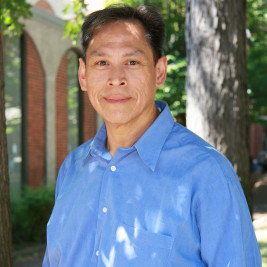Fernando Chang-Muy comments on Johnson v. Guzman Chavez
Fernando Chang-Muy, Adjunct Professor of Law at the University of Pennsylvania Carey Law School, comments on the SCOTUS decision in Johnson v. Guzman Chavez. The Supreme Court held that 6-3 that deported immigrants who re-enter the U.S. illegally and claim they fear torture at home must remain in custody while their cases are processed.
 “On Monday June 29, US Supreme Court Justice Alito, writing for the majority of 6 (Justices Breyer, Sotomayor and Kagan dissenting), decided which two sections of the complicated Immigration Act applies to certain detained individuals. This Supreme Court decision prevents persons from posting bond while they wait for a hearing date to tell their story. The Supreme Court stated that if persons were previously deported, reentered without permission, and are now in detention, they do not have the right to a bond hearing. In this case, at the actual immigration hearing, the applicants would be asking the government to withhold their removal because they fear that their life, liberty or freedom would be threatened if returned. The decision means that they must remain in prison while awaiting this hearing.
“On Monday June 29, US Supreme Court Justice Alito, writing for the majority of 6 (Justices Breyer, Sotomayor and Kagan dissenting), decided which two sections of the complicated Immigration Act applies to certain detained individuals. This Supreme Court decision prevents persons from posting bond while they wait for a hearing date to tell their story. The Supreme Court stated that if persons were previously deported, reentered without permission, and are now in detention, they do not have the right to a bond hearing. In this case, at the actual immigration hearing, the applicants would be asking the government to withhold their removal because they fear that their life, liberty or freedom would be threatened if returned. The decision means that they must remain in prison while awaiting this hearing.
One section of the Immigration Act, §1226, states that detained individuals have the right to ask for and if they meet the criteria, get released on bond pending their hearing. Another section of the Immigration Act, §1231 calls for mandatory detention with no right for a bond hearing, if the applicant was previously removed and is now in detention. The Supreme Court decided, that “§1231, not §1226, governs the detention of aliens subject to reinstated orders of removal, meaning those aliens are not entitled to a bond hearing while they pursue withholding of removal.”




